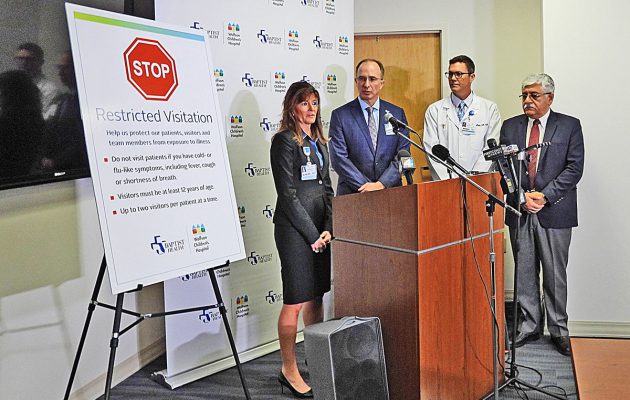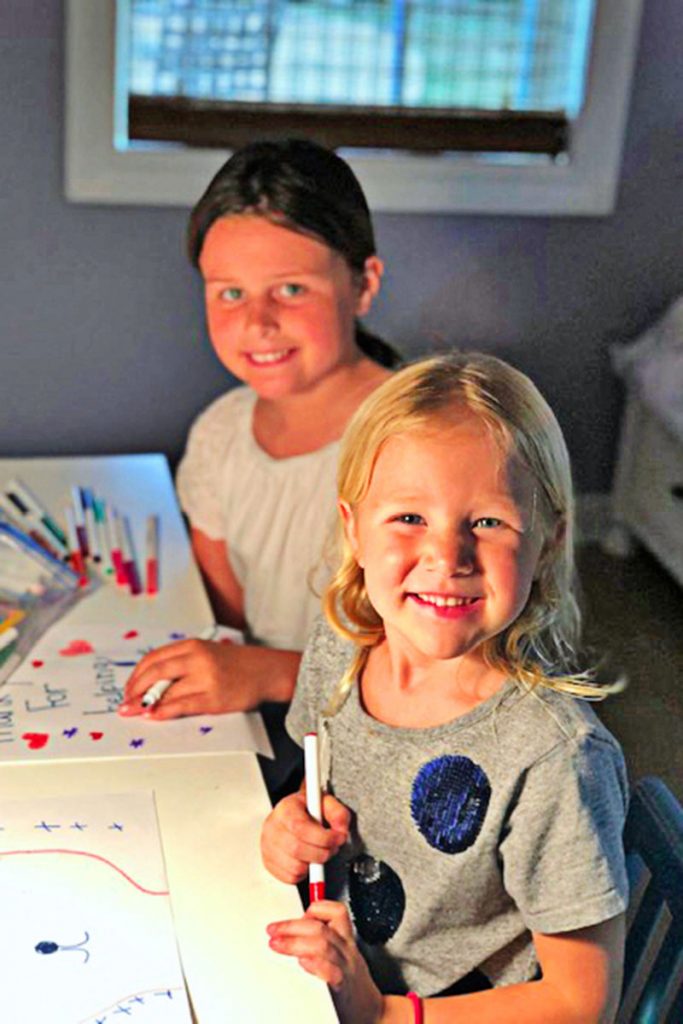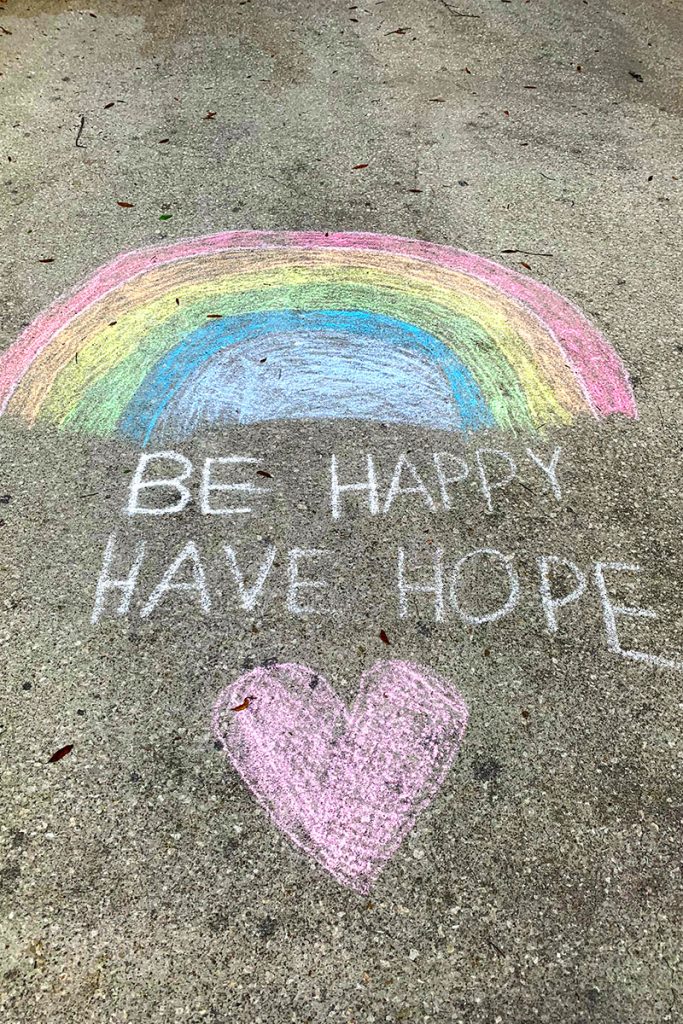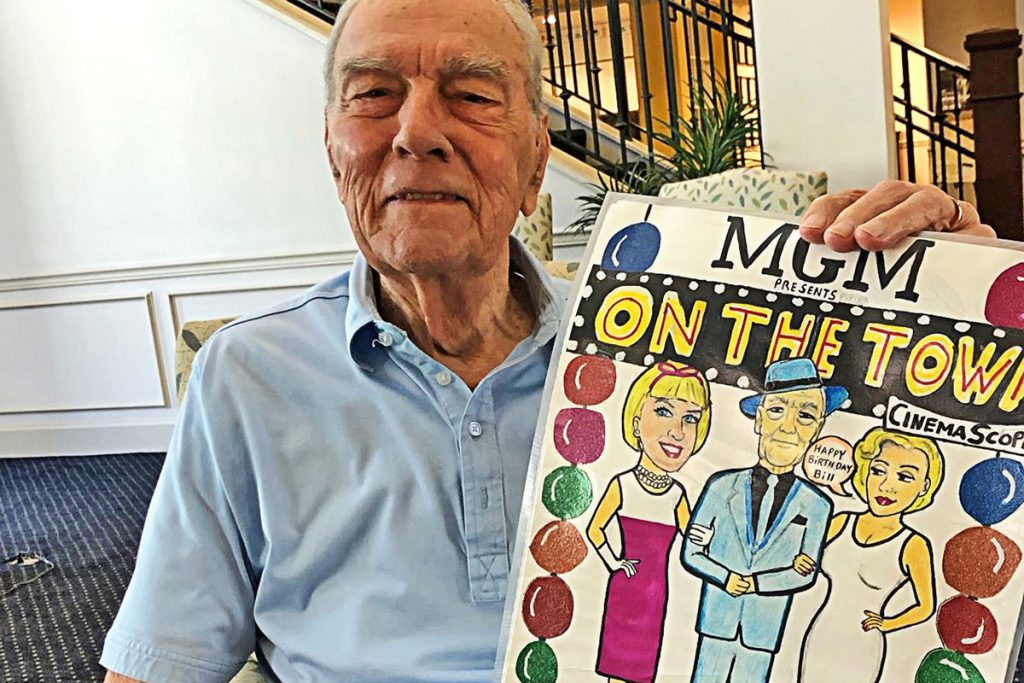Residents find creative ways to connect after closures
Posted on April 1, 2020 By Editor Our Community, Top Stories

There’s the old cliché: “March comes in like a lion and goes out like a lamb,” but in 2020, the reverse was true. Thanks to the spread of COVID-19, an unknown form of a known family of viruses that has sickened people throughout the world, Jacksonville residents have been advised by Mayor Lenny Curry to stay home as much as possible, work from home, and practice “social distancing,” by standing at least six feet apart, while the institutions they know and love – schools, parks, beaches, churches, restaurants, sports and social activities have been shuttered for the foreseeable future.
Despite that, the residents of Jacksonville’s historic neighborhoods were seen pulling together, finding ways to connect and spreading altruism despite sweeping changes in public life in March, which are expected to last throughout April and perhaps in the months beyond. Schools, work, and even some nonprofit events went online so that people could keep connected to create a sense of normalcy in what for everyone is unchartered territory. Neighbors found ways to help each other. But first, there were some major changes to navigate.
The closures echoed the waves of reported transmission of the virus. In early March, Baptist Health conducted a news conference to advise residents on ways to prevent Coronavirus transmission and advised people who might have been exposed to use an app, Telescope Health, to remotely see a doctor for a reduced cost. Baptist officials stressed that information about the virus was changing daily because the medical community knew so little about it. At the time of the press conference, things hadn’t really shut down yet.
But shortly afterward, the closures started and kept coming. The NBA shut down its season March 11 and the list of athletic closures extended in a cascade, from professional tournaments down to the high-school and middle-school level. On March 12, the PGA closed its signature event, The PLAYERS Championship golf tournament in Ponte Vedra, first to the public, then entirely after its first round. Charity events, public meetings, even neighborhood meetings were canceled, but the real pain for many families came when Florida Gov. Ron DeSantis made the hard decision to close all public schools.
The schools will not reopen until April 15 at the earliest and may not open again for the rest of the year. Students at Episcopal School of Jacksonville, The Bolles School, and Bishop Kenny, as well as many public schools in Duval County are now having students keep up with their studies through classes online. Soon after, DeSantis ordered all gyms to close and restricted restaurants to take-out and delivery only, while easing some rules to allow alcohol delivery. On March 24, Mayor Lenny Curry ordered all businesses to allow their employees that could work from home to do so.
Meanwhile, stores restricted their hours and some, such as Publix, posted signs advising people who waited outside for the morning opening, to stand in single file to reduce the risk of spreading the virus. Shelves were bare in the toilet paper aisles and devoid of sanitary wipes by the end of the month. All governmental and quasi-governmental meetings were cancelled by the end of the month, too.
Despite all those drastic instructions, many in Jacksonville’s historic districts found ways to congregate and interact in positive and uplifting ways. Many residents are supporting struggling local restaurants that were forced to close by ordering curbside pickup. Children have written letters of thanks to strangers, and created new ways for people to gather, and some residents even created a Facebook page so kids could participate in a kind of virtual scavenger hunt.
Annie Pajcic, who helms ThouArtExalted Ministries (TAE), with its headquarters on Talbot Street in the Shoppes of Avondale, said she was encouraging those who attended to “walk by faith, not by sight.” In the meantime, she said a relative was repurposing beloved family garments into masks that could be washed for use by local nurses and medical staff.
In Venetia, Drew Haramis, a St. Mark’s Episcopal Day School third-grade teacher, who also founded the nonprofit Angels for Allison, which helps bereaved parents, has bought takeout more often to support local restaurants and is teaching her students to practice altruism. Now, she teaches virtually over the internet because of the state mandate. But even so, she is practicing little ways of helping, as small as buying a $5 sandwich or sharing a smile.

“One of the greatest things we can teach our children is the gift of giving back to the community and others. One of the biggest things we did was to write cards and notes to local nurses and doctors. Or, write a letter to somebody you haven’t seen in a while, one of your relatives, your family member. The art of writing a letter is dying and how exciting would it be to go to your mailbox and get a handwritten letter from someone?” Haramis said, noting she had her students send their letters to staff at to Ascension St. Vincent’s Riverside, Ascension St. Vincent’s Southside, Mayo Clinic and Baptist Medical Center South, where her sister works as a nurse.
She is not the only one, by far. Neighbors are reaching out to each other in a multitude of ways. Take Suzanne and Joe Honeycutt of Colonial Manor, who are known for hosting neighborhood parties on their expansive deck overlooking the Duck Pond. They painted a table a cheery color – turquoise – and placed it outside their home on San Jose Boulevard. It created a way for people to gather in small groups, outside, where they could enjoy the fresh air. It’s become very popular, which delights them.
“It tickles us to see people sitting on it,” Suzanne Honeycutt said. “Especially at night, with the fountain lights on.”
Honeycutt also mentioned a Facebook group, 904 Rainbow Hunt Group, an online way to gather and do scavenger hunts for rainbows that are posted throughout the San Marco neighborhood. As of late March, the group had nearly 3,000 members posting pictures of the rainbows they hid and were found.

This might be why, in the neighboring Granada subdivision, Angela Lopez said she has seen colorful chalk rainbows adorning her neighbors’ driveways as she rides her bicycle through the neighborhood. She has also noticed that a youthful merry prankster has posted jokes on tree trunks near her home to cheer residents.
Churches are also trying to cope with the recommendation not to have parishioners gather in large groups and have been sharing their services on-line. District 14 Councilwoman Randy DeFoor, whose represents Riverside, Avondale, Ortega and Murray Hill, said that the shutdowns in the area have driven more participation in church services than usual through online sites.
And she said that even with the closures of bars and restaurants, residents were continuing to patronize local businesses by having them deliver food to their homes.
“I think people are really coming together for each other,” DeFoor said. “I think we are going to see a lot of similar results as we did in wartime, when the nation came together and from that, we had a big boom afterwards. In the meantime, we want to support each other as best we can – from six feet away. This is a difficult time for retailers. I hope it won’t be as long as we think. I think we need to hunker down and get through this difficult time.”

Wayne Wood, founder of Riverside Avondale Preservation, said being encouraged to spend more time at home meant that he and his wife, Lana, were inviting others to socialize in careful ways, like playing croquet, but that they also were now able to be more productive. For now, they are focusing on producing more art – Lana is renowned for her creations using traffic cones – and writing, as Wayne has written many seminal historical works about his historic neighborhood.
Riverside Avondale Preservation (RAP) Executive Director Warren Jones said that residents are trying to connect with each other in more creative ways.
“Just like in a hurricane, people are very concerned about their neighbors. Right now, we are all trying to figure out what is needed,” Jones said.
“If you are out, share a smile with someone,” Haramis said. “Because we are all starved for that interaction. Say your prayers and think good thoughts.”
By Jennifer Edwards
Resident Community News




 (No Ratings Yet)
(No Ratings Yet)





